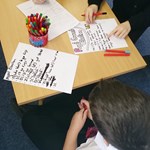Are we working well together?
blog by Cathy Sharp, Research for Real
One of the recent highlights of my working life was a week when I took part in contrasting events and activities across Scotland. These spanned people and settings as wide ranging as academics interested in how to create ‘meaningful dialogue drawing on diverse knowledge’; care home managers wanting to engage staff, relatives and residents much more in creating high quality care; and GPs and other health and social care professionals interested in how their own developing collaborative leadership practices might produce better outcomes for people and communities. The highlight of a stimulating week was taking part in a Space Unlimited Lasting Change event that brought young people and teachers from different schools together to explore how to engage and sustain young people to be genuine and active partners in learning.
If there was a theme of the week, it might have been ‘how we talk to each other’ and ‘how we work together’ to learn. It seems to be all about relationships, not so much ‘who you know’ as ‘how you know’ – in and through relationships, where people can come together, to take the time to really know each other as human beings. In talking about their own experience of the Space Unlimited enquiry process, one of the young people said, that “there are people with good ideas out there, but they don’t feel confident or in the environment to share them”. My mind drifted to the staff meetings where most people don’t take part and those who shout the loudest get heard. Another young person suggested “all it takes is one conversation where your ideas get heard and it feels better” and so transported me back to my relief after sharing my anxieties about my mother with her care home manager. Then I heard that some [other young] people were coming to the Space Unlimited enquiry for different reasons, like getting out of class, and that it slowed things down for everyone else. Again, I was back in those meetings where you lose the will to live. And the young people must have known what I was thinking because next came “sometimes older people don’t feel heard either, or comfortable to share their ideas”.
It was an emotional and positive day. I shared these nuggets and got a Twitter howl of recognition from some unexpected quarters. It seems we’re not working well together, when we often say that this is want we want to do and just when, perhaps more than ever, this is what we need to do.
Words like challenge and disruption are strong words that might induce fear and conjure mayhem in our minds. But how might we ‘positively disrupt’ the unspoken ground-rules and invisible norms of school and working life? The ‘rules’ about who talks and when, who is heard and how the way we do this might be a tool for joint enquiry and learning – genuinely thinking and working together, whether we’re teachers and pupils, managers and carers or GPs and patients. We could learn a lot from young people, who have shown that, given the right conditions, they can say simply and sincerely what they see or feel in dialogue with others. And when they do this, the conversation almost always shifts to something more open, interesting and more possibility and hope-full. The young people sense this potential:
“I just don’t get why more of school can’t be like this, I mean, we learn about everything else – well, when we actually study – but not …you know…’us’.”
Can we all take more time to ‘study us’? Imagine what we might learn if we did.
If you’re interested to hear more about the Working Well programme, check out the case study here.


One thought on “Are we working well together?”